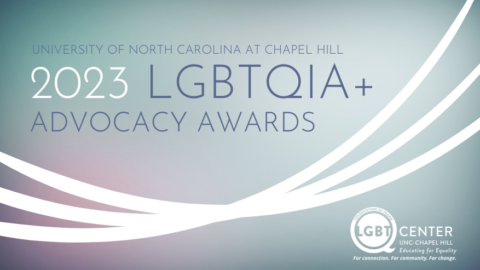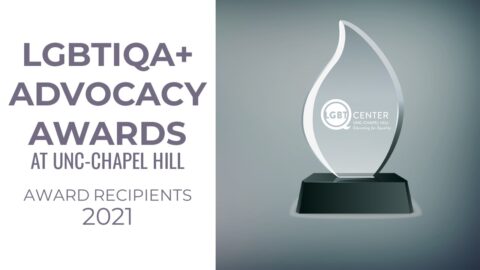Advocacy Awards
2023 Advocacy Award Nominations Open
The LGBTQ Center is a product of advocacy on the part of students, staff, faculty,…
March 8, 2023

Advocacy Awards, News
2021 LGBTIQA+ Advocacy Awards Recipients
Congratulations to the 2021 LGBTIQA+ Advocacy Awards Recipients: Dr. Sharon P. Holland, Dr. L.B. Klein,…
May 2, 2021

Advocacy Awards, News
2020 LGBTIQA+ Advocacy Awards Recipients
Details of 2020 LGBTIQA+ Advocacy Awards Recipients
May 10, 2020

Advocacy Awards, News
2019 LGBTIQA+ Advocacy Awards Recipients
The LGBTIQA+ Advocacy Awards recognize staff, faculty, and postdoctoral contributions, graduate and professional student contributions, and undergraduate contributions or advocacy on behalf of the LGBTIQA+ communities at the…
May 19, 2019

Advocacy Awards, News
2018 LGBTIQA+ Advocacy Awards Recipients
The LGBTIQA+ Advocacy Awards recognize staff, faculty, and postdoctoral contributions, graduate and professional student contributions, and undergraduate contributions or advocacy on behalf of the LGBTIQA+ communities at the…
May 19, 2018

Advocacy Awards, Uncategorized